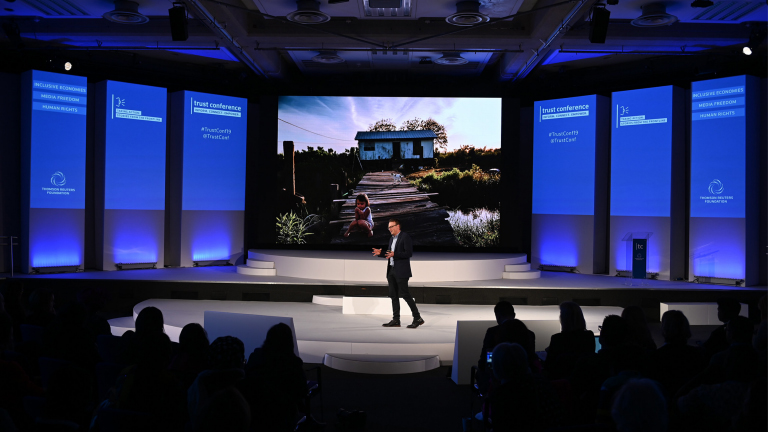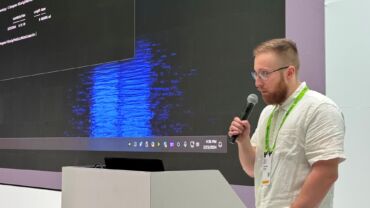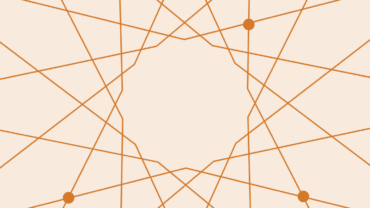What does it take to drive social change on a global scale?
From the climate emergency to deepening socio-economic inequalities, from surging threats to a free press, and the impact of technology on human rights – the intersecting crises affecting today’s societies are growing ever more acute.
The foundations of democracy are under siege. Global crises always hit the world’s most vulnerable first and hardest; inertia, ignorance, and instability threaten catastrophic long-term consequences for us all.
Interlinked global challenges
And whilst extreme weather impacts everyone, it does not impact everyone equally. It has forced an annual average of 21.5 million people from their homes since 2008, according to the UNHCR. A staggering 1.2 billion people will be displaced globally by 2050 due to climate change and natural disasters, as estimated by international think tank IEP.
Climate crisis and poverty are inextricably interlinked, with the consequences disproportionately affecting the young, the old, women, and the poor. Meanwhile, global efforts towards climate mitigation are also unfairly skewed, with poorer countries under pressure to cut carbon emissions without adequate support from richer nations. Yet the top 10% of emitters are responsible for close to half of all emissions, of which North America is by far the biggest contributor.
Recent figures demonstrating widening global inequalities are equally as bleak. This year’s World Inequality Report documents that the poorest half of the global population possesses just 2% of global wealth. In contrast, the richest 10% of the global population owns 76% of all wealth. At the same time, progress towards balancing gender inequalities is extremely slow, with women’s share of total incomes from work, for example, having increased only 5% since 1990 to 35% — a far cry from the 50% that would signify gender parity in earnings worldwide.
Economic disruption exacerbated by the pandemic, the rising cost of living, the climate crisis, and large-scale migration are stalling efforts to redress global inequalities. And, in an increasingly divided and polarized world, another power imbalance is at play.
Journalism is under attack
Information has become an ever-more-valuable currency, with a land grab by those desperate to control it. This is being played out by the surging threats to a free press around the world, hindering the flow of accurate, trusted, and independent information to those who need it most.
Professional, public interest journalism saves lives. It can change the narrative around marginalized communities, it can educate and empower those vulnerable to disinformation and propaganda, it holds power to account; it is key to protecting our fundamental human rights. Yet the media freedom ecosystem is slowly being dismantled — from the onslaught of online abuse targeting women journalists to the weaponization of laws against media practitioners.
UNESCO’s recent global survey of more than 900 women journalists in 125 countries found that 73% had experienced online violence. Individual trauma, discreditation, self-censorship, and the permanent shutdown of independent reporting have become the latest casualties in the war on press freedom.
Meanwhile, “fake news” and disinformation laws continue to be used as a smokescreen to crack down on media freedom, as illustrated most recently by Russia’s newly strengthened fake news laws which criminalize those who disseminate “false information” about the Russian army with a penalty of up to 15 years in prison.
In tandem, there has been a rise in the use of a wider range of laws to silence a free press. Dubbed “lawfare” by human rights barrister Caoilfhionn Gallagher, who acts for Nobel Peace Prize winner Maria Ressa, this form of harassment sees journalists facing legal threats ranging from fraud to corruption to breaches of copyright. Gallagher says a new tactic is to hit journalists with a slew of lawsuits simultaneously, forcing them to fight on multiple fronts. This leaves them unable to carry out their work, scrambling to source specialist legal support, and more vulnerable to the effects of smear campaigns.
So, how do we meet such complex and interrelated challenges head on?
Affecting change with the media and the law
Agility, innovation, and collaboration are key. These characteristics underpin the work of the Thomson Reuters Foundation. This year alone, from developing a pioneering online anti-harassment tool for journalists to launching Context, a news platform that covers the human impact of climate change, emerging technology, and the drive towards inclusive economies, our combined expertise — channeled where it can impact most — is what powers our work.
In using the twin engines of the media and the law, the Foundation’s news reporting, media development, free legal assistance, and convening initiatives affect change in three core areas: fostering more inclusive economies, advancing media freedom, and promoting human rights. All of our work is propelled by the belief that societies should be free, fair, and informed. We work with legal practitioners, civil society, policy makers, media organisations, journalists, and the private sector.
The Foundation has a legacy of convening these global players to achieve social impact. It is what drives our annual human rights forum Trust Conference — held this year in London on October 26 and 27 — dedicated to tackling the gravest issues of our time at the intersection of socio-economic inclusion, sustainability, media freedom, and human rights. The conference will bring together some 600 delegates, including world-leading experts, innovators, and activists at the forefront of global efforts to build inclusive and sustainable economies, free and equitable societies, and fair institutions.
Trust Conference schedule
The first day of the forum will focus on the surging threats to media freedom and digital rights. A mixture of keynote speeches, panel discussions, fireside chats, and spotlighted speakers will cover a range of topics — highlighting some of the most courageous reporting in the world, addressing the legal trends hampering media freedom, and the role of bitcoin in supporting the sustainability of journalism, to name a few.
We’ll also be discussing whether the Cambridge Analytica scandal could happen again, the ethical implications of AI developments, and we’ll be hearing from our colleague Nazanin Zaghari-Ratcliffe on her new-found freedom and insights into her harrowing experiences as a victim of political conflict.
The second day addresses the need to build more inclusive and sustainable economies at a time when global inequalities are deepening. We will explore topics such as overcoming barriers to switching to green economies, labor rights, gender equality and economic empowerment, how sustainable development strategies can effectively tackle persistent inequality, and how to incentivize businesses to embed social issues into corporate and investment practices.
Our incredible lineup of speakers includes:
- Dmitry Muratov, Nobel Laureate
- Editor-in Chief Novaya Gazeta
- Vanessa Nakate, Climate Activist
- Gabriela Ramos, Assistant Director-General for the Social and Human Sciences at UNESCO
- Danny Sriskandarajah, Chief Executive, Oxfam
- Mark Malloch-Brown, President, Open Society Foundations
- Christiane Amanpour CBE, CNN’s Chief International Correspondent
- Irene Khan, United Nations’ Special Rapporteur on the Promotion and Protection of the Right to Freedom of Opinion and Expression
- Brittany Kaiser, Co-founder of Own Your Data Foundation
- Katica Roy, Chief Executive Officer of Pipeline Equity
The only way to achieve progress towards equality and sustainability around the world is through a unified response that leaves no one behind. We need to coalesce, collaborate, and commit to action rather than words.
This is at the heart of the conference — and it is also at the heart of driving social change. Join us on the journey.



